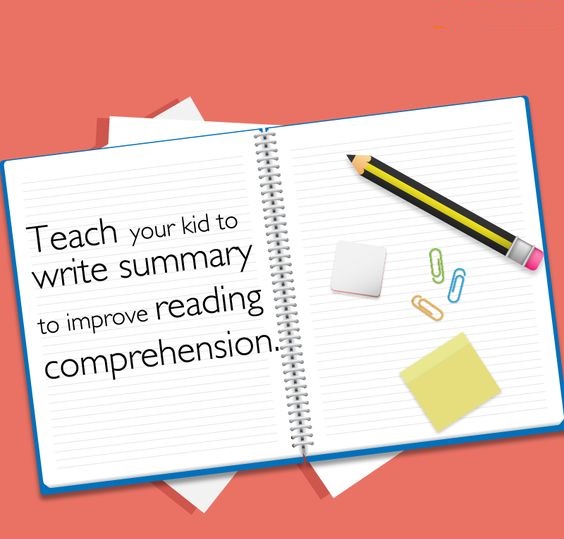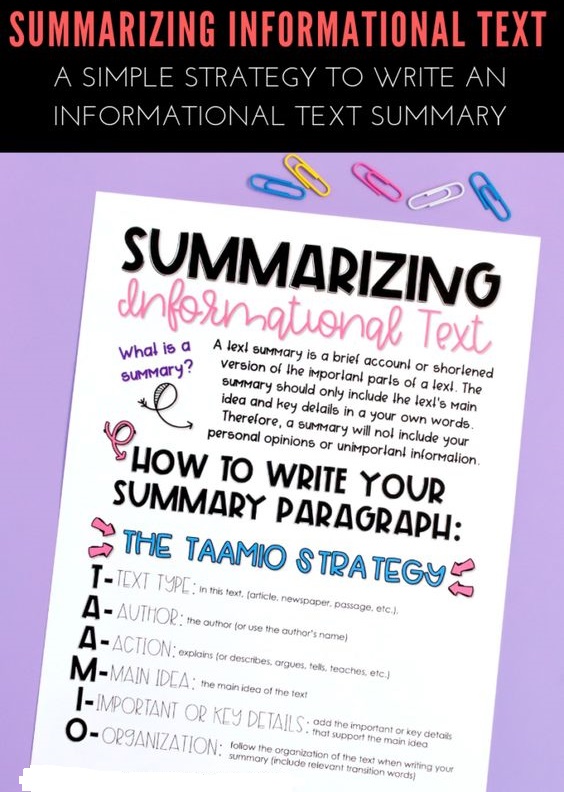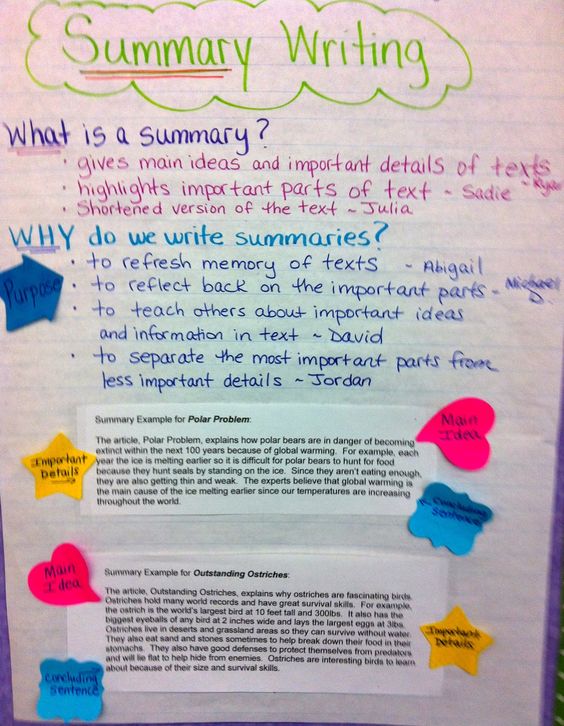How to Write a Summary?: When we read a long story or we require a quick recap of the context before our exams, do we read through the whole composition of words once more? Of Course, we don’t, which is why we try to summarise the long text in the smallest way possible, for us to understand the whole context in a given time.
There are many contexts where we require summarising a paragraph or maybe a summary of story. It is very vital for us to know how to write the summary of a story or a paragraph, or any text that we want to explain briefly. In this specific article we will know how to write a perfect summary and look at their advantages and cover the topics like how to write a summary for students.
How to Write a Summary in English?
- What is summarization
- Importance of summarization
- Use of summarization
- Tips for writing a good summary
- Takeaways from the article
What is summarization?
To summarise means to give a brief concise overview of a larger text or a word composition. The summary is always smaller than that of the original text. The word count is lower than the original. In a summary the writer has to go through the original text properly in order to figure out the key points or the key structures of the text.
The writer derives the necessary information from the original text, and then compiles them to write the shorter summary. A summary is not about criticizing the text or analysing or critiquing the original text. We should simply write down the summary with clear and accurate information from the original by taking up the most important parts from the original text and without using the language of the original text. We should use our own set of words to express ourselves.
Importance of summarization
The importance of the summary is to help the reader to know about the succinct overview of the text without having to read the text itself. Instead of reading a long paragraph or a long story, we can just read the summary of the given text, which will help us to derive the information of the text in a shorter time.
Summary is also important since sometimes when we need to do a quick run through the text, probably before an exam or maybe before an important event, the summary of the text would help us get the work done in a shorter time.
Use of summarization
You can use summary in many ways. Summaries can be used for writing essays or compact documents. Summaries can be used as a study material when preparing for exams since it gives a compact but detailed depiction of the original text. They can be used for forming answers, or even when writing documents and articles.
We can also summarise a movie or documentary to write out the precise information from them to help others understand about them or to even write our own blogs about the movie or the documentary. As soon as you learn how to write a summary correctly, you are capable of summarising your academic materials, or essays, different story, novel or poem plots. One is also capable of summarising historical events or current affairs.
Tips for writing a good summary
It doesn’t matter the reason why we are writing the summary, but to be able to write a correct summary is important. If your summary is in the correct order and is informative, then it would be very useful for its readers. To be able to summarise a story, poem, article, essay, newspaper or even different events and movies, is effective for a writer themselves.
So let us look through some of the important tips and tricks that you should remember while writing your summary.
Start with reading the text
When you are writing a summary, the first thing you have to do is to read the original text properly so that you are capable of getting hold of all the information without missing out any. For a better understanding, let’s divide this into three parts.
· Scan
Firstly, you should scan the article in your mind to get a hold of the topic it is based on and the overall shape of the original text.
· Read
Reading and re-reading the original text is a crucial point when writing the summary. When you are reading your text, make sure to write down the important points, or to highlight the information you feel is needed for your summary.
· Skim
After you’ve taken down your points, skim the original text once more to confirm if you are comfortable with all the information contained in it. Try re-reading any paragraph or any part which is slightly difficult for you to understand.
Identify the keywords
Detecting the keywords of an article is quite an easy part of writing a summary.
- You should first try looking through the abstract of the original text, where the author has their own summary of their work. Try to gather as many points from this. But if you are writing a summary for a passage or a text which does not have an abstract, then you should write down your own points after reading the text. Write down the most important points and the major events or the major happenings from the text.
- If headings and subheadings are available then, you should get a clear indication about the paragraph underneath too. Take up keywords from the headings.
- One of the most important parts when detecting the keywords is the Introduction and the conclusion of the original text. Both the Introduction and the conclusion holds important information since, the Introduction contains a generalized writeup about what the whole text is about and the conclusion holds the ending of the text hence it has other information like the main learning from the text.
Don’t repeat information
Repeating Information when writing the summary is the greatest mistake. One should never repeat information no matter what. You should only write the exact and accurate information without adding texts and examples of your own. Strictly follow the highlighted information from the text and write them down in your own words. Do not write in the words of the original text. Instead use your own words and sets of alphabetical arrangements to form the summary.
Keep it nice and brief
While writing a summary one should always remember that a summary is a concise summarisation of a larger text. So the summary should be short and to the point. We should never include unnecessary information to our summary. Keep your literary summary brief and to the point. Write the summary in paragraphs, and the number of words or lines in the summary paragraph always depends on the length of the original text. Don’t make your summary lengthy.
Do not include criticism or judgement
Always remember when writing a summary, you are writing a brief summarisation of a longer text and not reviewing the original text in any matter. So do not write your own opinion in the summary. Don’t include your own judgement and opinions about the text or any extra information and example of your own. Include information only from the original text itself and don’t exaggerate anything.
Quality writing
When you are writing a summary one of the most important aspects is doing quality writing. When we talk about quality writing it means that what we write should be interesting and engaging. We should know how to connect all the necessary information together and to write out an almost perfect summary.
Our summary should have a smooth flow mixed with the correct arrangements of the words and sentences, since it makes the reader want to read the summary. Create a well developed momentum by using transition of words and use the words wisely. Search through the vocabulary to write your summary but do not include extremely hard words which might provide the reader with an impression of the difficulty of the text hence they would not read it.
Takeaways from this article
- So the main takeaways from the article are as follows,
- When you are writing a summary, always write your summary in paragraphs.
- A summary is written in your own original words without copying the words of the original text
- Include an introductory sentence which should include the title of the summary, and other subtle information like the author’s name.
- A summary is a brief concise summarisation of a longer original text, so avoid including your own criticism, opinions, judgements or deductions. Don’t include examples of your own.
- Only write the main information and eliminate all sorts of unnecessary information and words.
- If you feel like it’s necessary to use a certain quotation from the original text, then keep it under the quotation marks “.
- Use the original text to refer to your points and write in your own language.
- Keep the summary brief and to the point.
- No repetition is allowed.
- Read and reread the text carefully so as to not miss out any points.
- Connect your sentences with the proper connecting words.
- Do research on your vocabulary while writing the summary, but make sure not to use very difficult vocabulary.
- Make the summary easy and informative.
- Arrange your words and sentences in the most brief way possible.
- Wrap up your summary with a sentence or a group of sentences which gives the summary a smooth finish.
Writing an amazing summary is easy when you are accustomed to the correct procedure. Summary writing is very helpful for us, it saves us time from reading a larger text and also helps us to improve our writing skills, hence we all should know the basics about writing a good summary.


